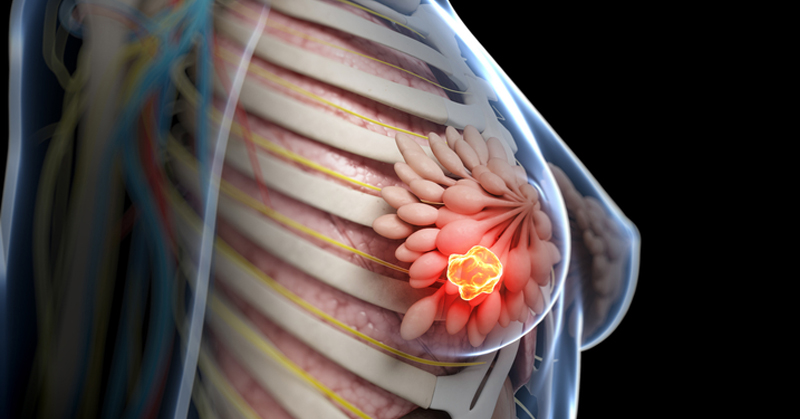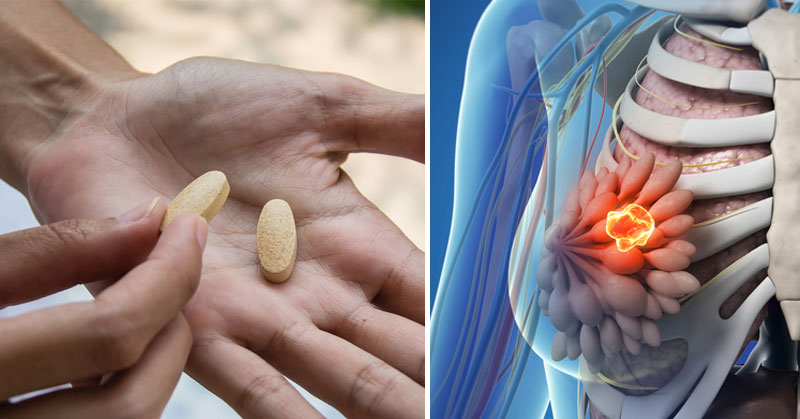It’s no secret that every medication comes with a long list of possible side effects. But a recent study found that the risks of taking certain pills have been underestimated for years. Scientists at the Institute of Cancer Research in London believe that these risks are actually about 60% higher than most people think.
The Link Between Hormone Replacement Therapy And Breast Cancer
Hormone Replacement Therapy is somewhat of a controversial topic. It was once used routinely to treat menopausal symptoms, until large clinical trials began revealing the many health risks associated with HRT. The onset of menopause causes the natural estrogen and progesterone levels in the ovaries to drop. This can lead to hot flashes, night sweats, vaginal dryness, painful intercourse, mood changes, and sleep problems. Women with severe menopausal symptoms were once prescribed HRT to help.
A recent study followed 39,000 British women as they went through menopause. The research found that women who took a combined form of Hormone Replacement Therapy were 2.7 times more likely to develop breast cancer over five years, compared to those who did not take the treatment. This type of Hormone Replacement Therapy contains both estrogen and progestin.

Previous studies have revealed that HRT increases the risk of breast cancer, but scientists are finally discovering how high the risk is. According to the new research, 34 in 1,000 women got breast cancer on combined HRT. Researchers also found that the cancer risk grows the longer a woman is on the therapy. Women who take combined HRT treatments for 15 years or more are 3.3 times as likely to get breast cancer than those who never take the pills.
Combination HRT can make the breasts look more dense on mammograms, making the cancer more difficult to detect. The chances of finding breast cancer in more advanced stages become higher, along with a higher risk of death from the disease. The silver lining of the research is that the risk drops as soon as you stop taking the medication.
Natural Alternatives For Menopause
The side effects of menopause can drastically reduce quality of life for many women. While Hormone Replacement Therapy may be able to help with symptoms, it also increases your risk for breast cancer. There are several natural ways to treat hormone imbalances and reduce the symptoms of menopause.
1. Optimal Nutrition
The foods you eat are a vital part of maintaining a healthy, balanced body. It’s important to make sure you’re consuming enough vitamins, minerals, and essential nutrients. Eat a diet full of fruits, vegetables, and a balance of healthy fats, complex carbohydrates, and protein.
2. Exercise
Many women experience frustrating weight gain during menopause, especially around the stomach and abdomen area. This is due to fluctuating estrogen levels that tend to cause the body to hold onto fat. Getting into a routine of walking, dancing, biking, swimming or any other form of exercise can have a positive impact on your hormones and your overall health.

3. De-stress
Some women become stressed, anxious, or overwhelmed with the onset of menopause. Stress can cause additional imbalances in hormone levels, which can affect mood, mental function, thyroid function and digestive function. Stress has also been linked to symptoms, such as hot flashes and low libido. Finding a way to keep your stress levels down can do wonders for menopause symptoms.
4. Herbal Remedies
Plants and herbal remedies have been used for centuries to treat various medical conditions. Many plants and herbs share various molecular features with our hormones, which allows them to support our hormone production, slow it down, or even mimic what our hormones do, depending on the needs of the body. Herbs that can help reduce menopause symptoms include passionflower, chasteberry, wild yam, ashwagandha, and black cohosh.
Sources:
Real Farmacy
Everyday Health
Medline Plus
The Truth About Cancer
Women to Women


